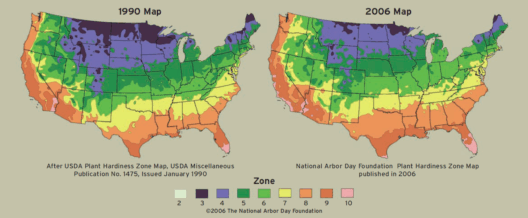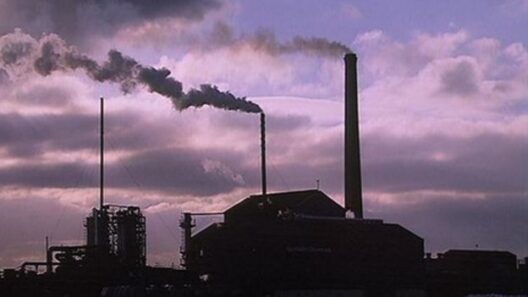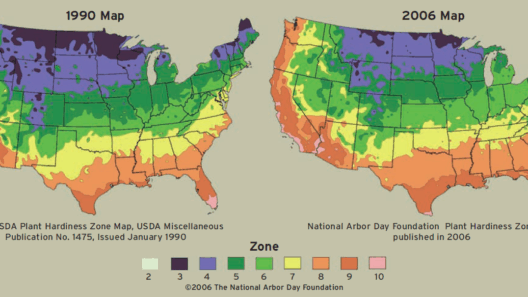The British Isles, with its picturesque landscapes and temperate climate, has long been a region of fascination for both residents and visitors alike. However, the question arises: has global warming truly impacted this storied archipelago? The evidence, increasingly apparent over the past few decades, suggests that climate change is not merely a distant threat but a pressing reality that has begun to manifest in various forms across these islands.
To understand the impact of global warming on the British Isles, one must first examine the temperature trends. According to meteorological data, the average temperature in the UK has risen by approximately 1°C since the late 19th century. To many, this may seem like a modest increase, yet it is significant when one considers the potential implications. With prolonged periods of warmth, the climate has become increasingly erratic. Heatwaves, once rare occurrences, have surged in frequency and intensity, igniting concerns about the viability of traditional agricultural practices.
A notable factor in this climatic transformation is the shifting precipitation patterns. The British Isles, historically characterized by its wet weather, are now experiencing extremities in rainfall. Increased instances of torrential downpours have resulted in frequent flooding, adversely affecting communities and ecosystems alike. Urban areas, particularly low-lying regions, face the formidable challenge of managing stormwater drainage systems overwhelmed by sudden deluges. Conversely, periods of drought have become more pronounced, exacerbating water scarcity issues and posing threats to public health and food security.
The ecological ramifications of these changes are equally alarming. Species migration patterns have shifted, with some flora and fauna struggling to adapt to the newly warmed clime. The once familiar sights of certain bird species have become increasingly inconspicuous as they seek out cooler habitats. Marine ecosystems are not exempt from these transformations; the warming seas around the British Isles have led to disruptions in fish populations, with commercially important species such as cod and haddock moving poleward in search of suitable temperatures. This shift not only threatens biodiversity but undermines the fishing industry that many coastal communities rely on for their livelihoods.
Sea-level rise, a consequential effect of global warming, poses yet another existential threat to the British Isles. The combination of thermal expansion of seawater and the melting of polar ice caps has led to escalating sea levels that threaten coastal communities. Areas such as East Anglia and parts of Scotland are particularly vulnerable, facing the prospect of inundation. The UK government has initiated various schemes to bolster coastal defenses, yet many argue that these measures may prove inadequate in the face of unchecked climate change.
Moreover, the cultural ramifications of changing weather patterns are profound. The British Isles have long enjoyed a unique relationship with nature, informing traditions, festivals, and even local economies. Historic farming practices that were fine-tuned over centuries are facing obsolescence as crops struggle to cope with changing climates. The cherished landscapes, often celebrated in literature and art, may soon transform, losing their iconic characteristics and intrinsic value.
In addition to these environmental and cultural dimensions, socio-political factors come into play. The discourse surrounding climate change has prompted a re-examination of energy policies within the UK. The government has committed to ambitious carbon neutrality targets, yet skeptics question whether these goals are achievable in the absence of widespread public support and tangible action. As climate change becomes a more prevalent concern among the populace, the call for sustainable practices has grown louder, fostering a greater awareness of what it means to live in a carbon-neutral society.
Community initiatives are emerging throughout the British Isles, demonstrating that local action can significantly mitigate the impacts of climate change. From urban gardening projects to widespread tree planting campaigns, citizens are increasingly proactive in their responses. These grassroots movements not only help ameliorate the environmental consequences but also reinforce social bonds, reminding communities of their interconnectedness and shared responsibilities.
The fascination with global warming in the British Isles lies not solely in the observable changes but also in the underlying narratives that challenge the future of this region. Climate change is not just a linear progression of temperature increases; it embodies a confluence of historical, ecological, and cultural dynamics that reflect upon human interaction with the environment. As the landscape continues to evolve, the story of climate change unfolds—one that evokes both concern and a call to action.
In conclusion, the British Isles are indubitably experiencing the ramifications of global warming. The changes are multidimensional, encompassing shifting climate patterns, ecological disruptions, cultural shifts, and burgeoning socio-political commentary. With each passing year, the urgency to address climate change reverberates more loudly, calling upon individuals, communities, and national leaders to forge sustainable pathways forward. In a world increasingly marked by the effects of climate change, the British Isles stand as both a witness and participant in this unfolding narrative, urging us to reflect on our role and response in the face of a changing climate.






